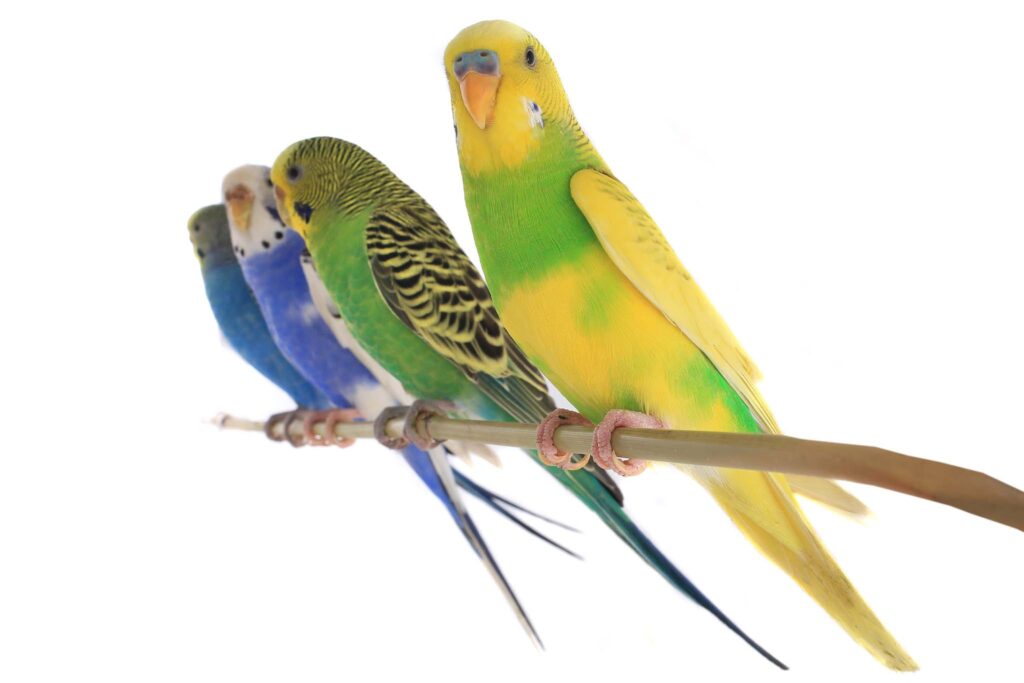
Bird Vitamins: Boosting Avian Health Through Proper Supplementation
What Are Bird Vitamins and Why Do Birds Need Them?
Bird vitamins are dietary supplements formulated to provide essential nutrients that birds may not receive in sufficient quantities through their regular diet. Whether you’re feeding a seed mix, pellets, or fresh foods, there’s always a risk of nutritional gaps—especially in captive environments.
In the wild, birds forage a wide variety of fruits, seeds, insects, minerals, and plant materials. In captivity, their access is limited by what we offer. That’s where bird vitamins come in—to bridge deficiencies and prevent illness, weakness, and poor feather condition.
Supplementing with the right bird vitamins can improve your pet’s energy levels, immunity, reproductive health, and longevity.
If you’re shopping online and want to try something different than Petsmart, we recommend Dyno.ca
Comparative Chart: Seed Diets vs. Pellets vs. Bird Vitamins
| Nutritional Aspect | Seed-Only Diet | Pelleted Diet | With Bird Vitamins |
|---|---|---|---|
| Vitamin A | Poor | Moderate–Good | Optimal |
| Calcium | Inconsistent | Moderate | Strong, if supplemented |
| Feather quality | Often dull | Improved | Bright and consistent |
| Immune system support | Low | Moderate | Strong with correct dosing |
| Risk of deficiency | High | Moderate | Low |
| Ideal for breeding? | No | Yes, with supplements | Yes |
Signs Your Bird May Need Vitamins
It’s not always obvious when your bird has a nutritional imbalance. Subtle changes in behavior, appearance, or droppings may indicate a vitamin deficiency.
Common signs of vitamin deficiency:
- Dull, brittle, or discolored feathers
- Poor molting or slow regrowth
- Weakness or lethargy
- Beak deformities or flaking
- Poor appetite or picky eating
- Soft eggs or reproductive issues (in breeders)
- Increased susceptibility to infection
- Neurological symptoms (e.g., tremors in severe cases)
If your bird is showing any of these signs, consult an avian veterinarian and consider supplementing with bird vitamins under guidance.
Essential Vitamins for Birds and Their Functions
Birds require a balance of vitamins for proper physiological function. Below are the key vitamins most commonly included in bird supplements:
| Vitamin | Purpose & Benefits |
|---|---|
| Vitamin A | Supports immune health, eyesight, and tissue growth |
| Vitamin D3 | Aids in calcium absorption and bone strength |
| Vitamin E | Antioxidant; supports reproduction and muscle health |
| Vitamin B Complex | Supports metabolism, feather growth, and nerve function |
| Vitamin C | Immune support (especially under stress) |
| Vitamin K | Supports blood clotting |
Many birds on seed-only diets are severely lacking in Vitamin A, one of the most critical for respiratory health and immunity.
Types of Bird Vitamins Available
There are different forms of bird vitamins designed for various species and feeding methods.
Main types:
- Water-soluble vitamins: Mixed into drinking water; easy to administer, but can degrade over time
- Powdered supplements: Sprinkled over moist food or fresh produce
- Liquid drops: Given directly or added to food
- Pellet-enriched vitamins: Found in fortified diets (less flexible dosing)
- Specialty formulas: Designed for breeding, molting, or recovery phases
Choose a product appropriate for your bird species, diet, and health needs. Always follow dosage instructions carefully.
Bird Species That Commonly Require Vitamin Supplementation
While all captive birds can benefit from nutritional support, some species are more prone to deficiencies.
High-risk species:
- Parrots (especially Amazons, Greys, Cockatoos): Need Vitamin A and calcium support
- Canaries and finches: Require B-complex vitamins during molting and breeding
- Budgies (parakeets): Often on seed-only diets, need multivitamins regularly
- Cockatiels: Benefit from D3 and calcium support, especially laying females
- Softbills (e.g., mynas, toucans): May need vitamin C and iron regulation
- Hand-fed chicks: Require specialized formulas with complete vitamin profiles
Always match the supplement to the species’ natural dietary tendencies.
How to Administer Bird Vitamins Safely
Administering bird vitamins is straightforward, but correct dosing and method are crucial.
Tips for safe supplementation:
- Always read product labels carefully—never exceed the recommended dose
- Add to water only if changed daily—vitamins degrade in light and air
- Use powdered vitamins on moist foods like chopped veggies or fruit
- Avoid combining multiple supplements unless advised by a vet
- Don’t mix with antibiotics unless the product is specifically designed for it
- Rotate enriched fresh foods to reduce dependency on supplements
Consistency is more important than over-supplementation. Too much can be as harmful as too little.
Natural Sources of Bird Vitamins in Diet
Supplementation isn’t the only way to provide vitamins—fresh foods are an excellent source of many nutrients.
Vitamin-rich foods for birds:
- Vitamin A: Carrots, sweet potatoes, red peppers, dark leafy greens
- Vitamin E: Sunflower seeds, almonds, spinach
- Vitamin C: Bell peppers, kiwi, oranges (in moderation)
- Calcium & D3: Boiled egg with shell, crushed oyster shell, natural sunlight
- B Vitamins: Whole grains, legumes, brewer’s yeast
- K: Broccoli, kale, spinach
Rotate fresh offerings daily to ensure a full nutritional range. Remove uneaten produce within a few hours to prevent spoilage.
Bird Vitamins for Breeding, Molting, and Stress Recovery
Certain life stages or events require targeted supplementation.
When extra vitamins are needed:
- During molting: Increases need for B-complex and protein
- During breeding: Vitamin E and D3 are critical for fertility and eggshell formation
- After illness or medication: A full-spectrum vitamin can help restore energy
- Under stress (new home, shipping, change of cage): Vitamin C and B-complex support immune and nervous systems
- For chicks or hand-fed juveniles: Use specialized formulas designed for growth
Monitor your bird’s condition during these phases and adjust supplementation accordingly.
Common Mistakes to Avoid with Bird Vitamins
Even well-intentioned owners can misuse bird vitamins. Here are common errors to watch for:
Avoid the following:
- Overdosing fat-soluble vitamins (A, D, E, K): These accumulate and can become toxic
- Relying solely on supplements without improving the diet
- Using expired or poorly stored vitamins
- Mixing supplements into old or contaminated water
- Assuming one product fits all birds—always species-match
- Neglecting to remove vitamins in molasses or sugar base for diabetic-prone birds
If in doubt, consult an avian vet to design a safe, targeted supplementation plan.
Top-Rated Bird Vitamin Brands and Products
Many reputable companies manufacture safe, vet-recommended bird vitamins. Choose brands that specialize in avian nutrition.
Highly rated products include:
- Harrison’s Bird Foods – Avix Booster
- Lafeber’s – Avi-Era Multivitamin
- Nekton-S – Comprehensive Vitamin Supplement
- Zoo Med – Avian Plus
- Vetafarm – Soluvite D (Vitamin D3-specific)
- Roudybush – Calcium and Vitamin Drops
Always buy from trusted suppliers to avoid counterfeit or mishandled products.
Final Thoughts: Should You Add Bird Vitamins to Your Routine?
Adding bird vitamins to your bird’s routine is a simple and effective way to prevent deficiencies, promote longevity, and support seasonal or reproductive challenges. While a balanced diet should be the foundation of avian health, supplementation ensures that nothing critical is missing.
Remember that no two birds are alike—species, age, diet, and lifestyle all affect nutritional needs. By staying informed, rotating fresh foods, and using high-quality supplements, you give your bird the best chance at a long, vibrant life.
